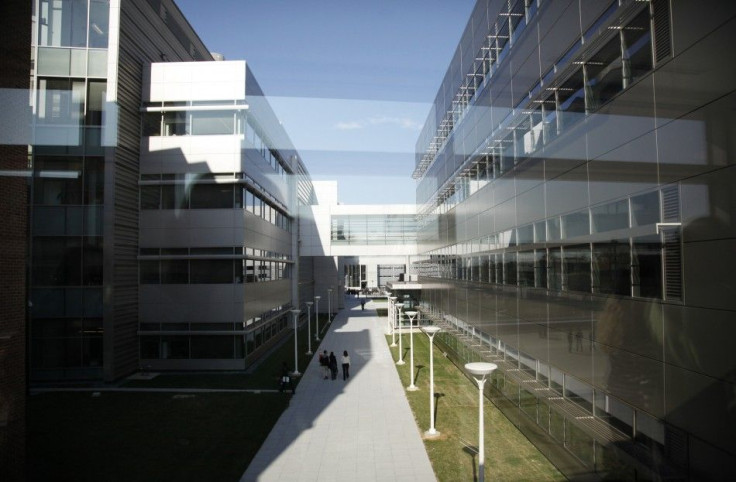FDA Acts to Stem Shortages of Two Cancer Drugs

SILVER SPRING, Maryland (Reuters) - The U.S. Food and Drug Administration said it will resolve a potentially life-threatening shortage of two leading cancer drugs by allowing one of them to be imported from abroad and rushing approval for a new manufacturer to make the second.
The moves announced on Tuesday mark the latest government effort to address severe drug shortages. More than 200 medicines were in short supply in 2011 and doctors and patient advocates say the crisis has forced providers to postpone care or use second-best or costlier alternatives.
The FDA will allow imports of an alternative to the cancer drug Doxil, which in the next few weeks should meet all patient needs, the agency said. The drug is called Lipodox and has the same active ingredient as Doxil, doxorubicin.
Late on Friday, the FDA also approved a new company, APP Pharmaceuticals, to make preservative-free methotrexate, a drug used to treat children with leukemia. APP is a unit of German healthcare group Fresenius.
We believe we can meet the needs of patients on a continuing basis, FDA Commissioner Margaret Hamburg said at a news conference. This should resolve the shortages.
Doxil, a cancer drug marketed by Johnson & Johnson, has been in persistent short supply since manufacturing problems surfaced at a plant of Ben Venue, a unit of German drugmaker Boehringer Ingelheim that has been making the drug under contract.
The injectable drug, which has annual global sales of about $500 million, is used to treat ovarian cancer and multiple myeloma. About 7,000 patients used the drug in the United States before Johnson & Johnson announced a possible supply disruption last June. The company said in January it was able to allocate the drug to 4,400 patients.
The FDA said it reached a limited, temporary arrangement to import Lipodox from Indian drugmaker Sun Pharmaceutical Industries Ltd and its distribution subsidiary, Caraco Pharmaceutical Laboratories Ltd.
Ben Venue's problems have also contributed to a shortage of methotrexate, leading U.S. lawmakers to call for action last week from the FDA and manufacturers amid fears U.S. medical practices were close to running out of the drug entirely within a few weeks.
The medicine has been on the shortage list since last year. It helps treat about 3,500 children a year with acute lymphoblastic leukemia and has cure rates close to 90 percent.
In response, Ben Venue also said last week it would release reserves of methotrexate made before it shut down the plant last November.
MORE TO DO
President Barack Obama made shortages a national priority with an executive order in October and the FDA said it has prevented 114 shortages since then, mainly by working with manufacturers.
The FDA has said the number of drugs in short supply, which include cancer, anesthesiology and nutrition medications, had risen to 220 in 2011 from 56 in 2006 - the year a clear trend started emerging. Many of the drugs are generic, sterile injectable medications.
FDA officials say a number of industry factors have created the shortages, including a consolidation of generic drugmakers, manufacturing problems that have shut down plants or production lines and the decision by some manufacturers to stop producing a treatment when profit margins erode too far.
Patient advocates and doctors who also spoke at the FDA said helping patients who need Doxil and methotrexate was a positive step, but does not address the needs of others whose treatments remain in short supply.
They called for longer-term action that could prevent drug shortages.
It's a shame to have to put our children at risk to bring attention to this problem, said Dr. Peter Adamson, chair of the Children's Oncology Group.
While today was good news, the fact is that the (drug shortages) list is not getting smaller, and may be growing.
Adamson also called on Congress to speed passage of legislation that could help address the issue of shortages by forcing manufacturers to notify the FDA about looming supply disruptions. Now, by law companies only have to tell the agency they are stopping supply when they are the only maker of a drug.
The legislation has been stuck in a divided Congress for more than a year, despite support from both political parties.
The agency said it will also release guidelines for manufacturers to inform the FDA about looming shortages, as early notification can help prevent them.
Sandy Kweder, the deputy director of the FDA's Office of New Drugs, said the agency began working on increasing supply of methotrexate last year, since they became aware of persistent issues at the Ben Venue plant.
The FDA said in September 2011 that it sped up the application from APP for methotrexate, which had been languishing in the FDA's overcrowded waiting list for generic applications since August 2010.
It also asked to ramp up production at other makers of methotrexate: Hospira Inc, Mylan Inc and Sandoz, a unit of Novartis.
Hospira said it shipped 31,000 vials of methotrexate in the last 24 hours, which represent a month's worth of demand in the United States. Hospira CEO Michael Ball also said the company would be releasing another 34,000 units next week and 55,000 units in mid-March, all produced at its plant in Australia.
(Editing by Lisa Von Ahn, Gerald E. McCormick and Andre Grenon)
© Copyright Thomson Reuters {{Year}}. All rights reserved.






















